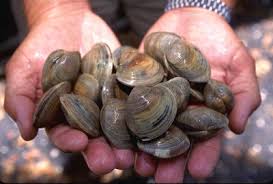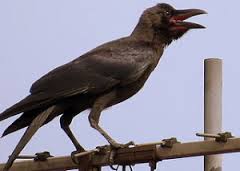
Learning phrasal verbs in English can be difficult! Here are 10 more unusual phrasal verbs that English learners often don’t know.
beef up = make something greater or stronger
“The city of Rio de Janeiro will beef up security for the Olympics in 2016.”
This means that Rio will be increasing the number of police and taking stronger measures to eliminate violence and make the city safe.
bounce (an idea) off someone = present the idea to a person or group, to get their opinion or reaction to it
“I have a few different ideas for our advertising campaign. Could I bounce them off you?”
This is a sentence you could say to your boss or colleague. It means that you will talk about your ideas, and the boss or colleague will give you his or her opinion, feedback, or suggestions.
bristle at (something) = show sudden anger or annoyance in reaction to something
“Carla bristled at Dan’s comment that her mother was too intrusive.”
The word “bristle” refers to the way dogs and cats react to a threat – the fur on their backs stands up, indicating that the animal is angry. You can say a person “bristled at” a comment or situation if they react like a threatened animal.
clam up = stop talking and refuse to say anything more
“My teenage son talks a lot about sports, but when I ask him about school, he clams up.”
This animal is called a clam. When a clam closes its shell, it’s very hard to open it! In the same way, a person who closes their mouth and won’t open it is said to “clam up.”

crow about / crow over = to brag (talk arrogantly) about something
“When Brian got promoted, he wouldn’t stop crowing about his new six-figure salary.”
This bird is called a crow. The song of a crow is rather loud and annoying – in the same way, a person who talks arrogantly about themselves or about some success is said to be “crowing over” it – because it’s usually annoying to listen!

Image: Tu7uh
fawn over (someone/something) = give excessive attention, admiration, or affection
“I have three daughters, but everyone fawns over the youngest one.”
You can fawn over a person or an object – for example, many people fawn over celebrities or especially talented or beautiful people. It’s also common to fawn over new products, like when a man buys a big motorcycle and all his friends fawn over it.
size (someone) up = look at the person and make a quick evaluation
“Shannon sized up her opponent for the final round of the karate tournament.”
The phrasal verb size up is often used in sports, when one player or team is looking at the other player or team and trying to evaluate them. But you can also use it in other situations, like “sizing someone up” when they appear for a job interview or a first date.
plod along = to move forward slowly and deliberately
“I got stuck behind a slow driver – he was just plodding along, admiring the scenery!”
The phrasal verb plod along can refer to slow physical movement, like driving or walking – or it can refer to slow progress in a project or a movie.
wipe out = to kill, eliminate, or destroy something/someone
“The pollution has wiped out most of the fish in the river.”
This phrasal verb can be used for war and genocide, like when one people group wipes out another group. It can also be used for animals (as in the example) as well as objects – for example, a new cancer medicine that completely wipes out a tumor.
mull over (something) = to think about or consider it very carefully
“After mulling over the decision for three days, she chose not to take the job.”
You can also use “think over” or “think through” – but “mull over” implies an even deeper level of consideration. People often mull over philosophical, ethical, or religious questions.
Keep learning: Phrasal Verbs with PUT

